CYCOGS ® Sensing Platforms and Sensor Rings
The
This is an introduction into Sensing Platforms and the CYCOGS ® brand sensor ring.
In Robotics, sensors are used extensively to learn about the robot’s world and its environment.
This is even more crucial for Mobile Robots as the world they sense can change rapidly. Efforts to provide sensor coverage has employed many sensors that are duplicated in various locations, such as a multitude of sonar sensors on a Mobile Robot. Cost also limits sensor deployment, as some sensors are expensive, such as IR thermal cameras.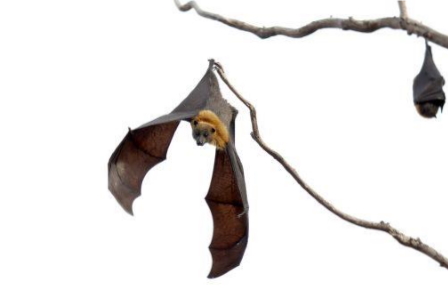
 Moving and rotating sensor platforms have been around for a long time.
Moving and rotating sensor platforms have been around for a long time.
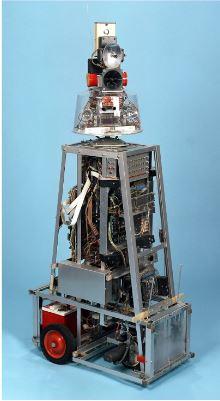
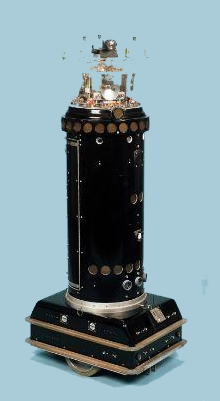 Moving and rotating sensor platforms include radar dishes, line scan cameras, cameras on a rotating base for "panning", and laser scanners.
Moving and rotating sensor platforms include radar dishes, line scan cameras, cameras on a rotating base for "panning", and laser scanners.
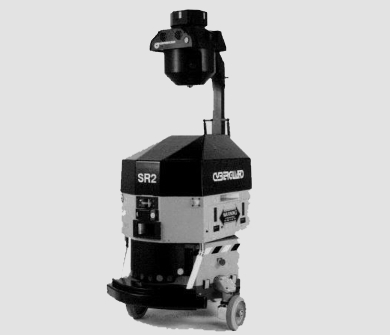 In the Mobile Robotics field, rotating platforms have in addition been used,
containing such sensors as laser scanners, sonar sensors, LIDAR sensors, infrared sensors and cameras.
In the Mobile Robotics field, rotating platforms have in addition been used,
containing such sensors as laser scanners, sonar sensors, LIDAR sensors, infrared sensors and cameras.

A human’s head represents a prime example of a rotating sensor platform; we aim our head toward a sound we hear for a more attentive check.
Regrettably, our neck has limited rotation capability. Some sensors are expensive, consume substantial amounts of power, use a long form factor or occupy a substantial volume. Many sensors cover only a narrow Field of View (FoV) and some sensors require periodic, involved calibrations and maintenance. Large sensors may not fit any robot designs, but could if the sensor parts could be distributed or folded in size, such as with the optical paths on a Cassegrain telescope. The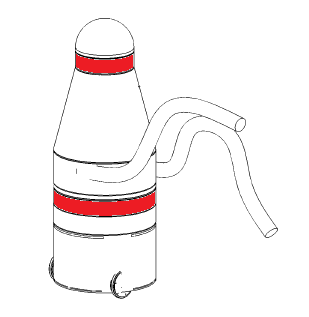 In this illustration, as displayed in Red, is the placement of two rotary sensor rings shown on a mobile robot.
In this illustration, as displayed in Red, is the placement of two rotary sensor rings shown on a mobile robot.
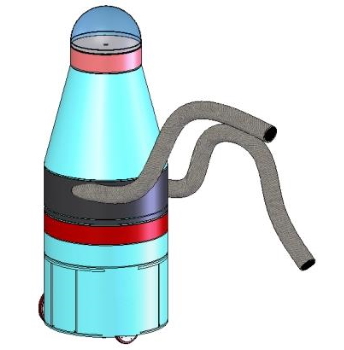
The CYCOGS ® brand sensor platform reduces the total sensor cost and expands the sensing ability
with no sensor obstructions in a modular design utilizing local processing and control of the sensor platform while featuring
a large internal diameter to provide the chassis with maximum interior volume for the supporting structure as well as provides for
the traversal past the sensor platform of wires, mechanisms and equipment.
The The CYCOGS ® brand
Sring™
local on-board sensor data processing,
as well as the local control of the sensor platform positional control by using one or more embedded computers,
reduces the overall system data traffic and allows simplified power and data connections and cable installation.
With local on-board computers, sensor signals can be digitized and processed locally.
Locally processing the sensor data also eliminates the problems of adding additional sensors,
as there is no need to include new wire runs in the chassis for each new sensor installed in the sensor platform.
The rotational movements of the sensor ring platform are varied and can range from stationary,
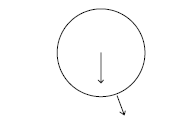 to continuous 360+ degree rotations,
to continuous 360+ degree rotations,
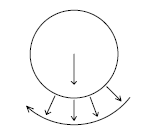 or even area scanned (sector scanned – swinging back and forth to examine a sector of view)
or even area scanned (sector scanned – swinging back and forth to examine a sector of view)
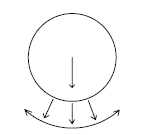 and other-directed movements.
and other-directed movements.
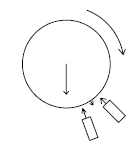 The
The The
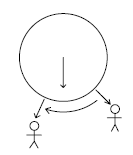 This comprises a new option for sensing mobile environments using the
This comprises a new option for sensing mobile environments using the For further details on the
(Sring™) product link
For a story about the
Sring story link
Learn more about AI Robotics with the
Contact: Send questions and comments about this Education on Robotic Automated Sensing Platforms web site to the